REFOCUS • REBOUND • REPEAT
An online panel discussion about risk-taking and agility in turbulent times
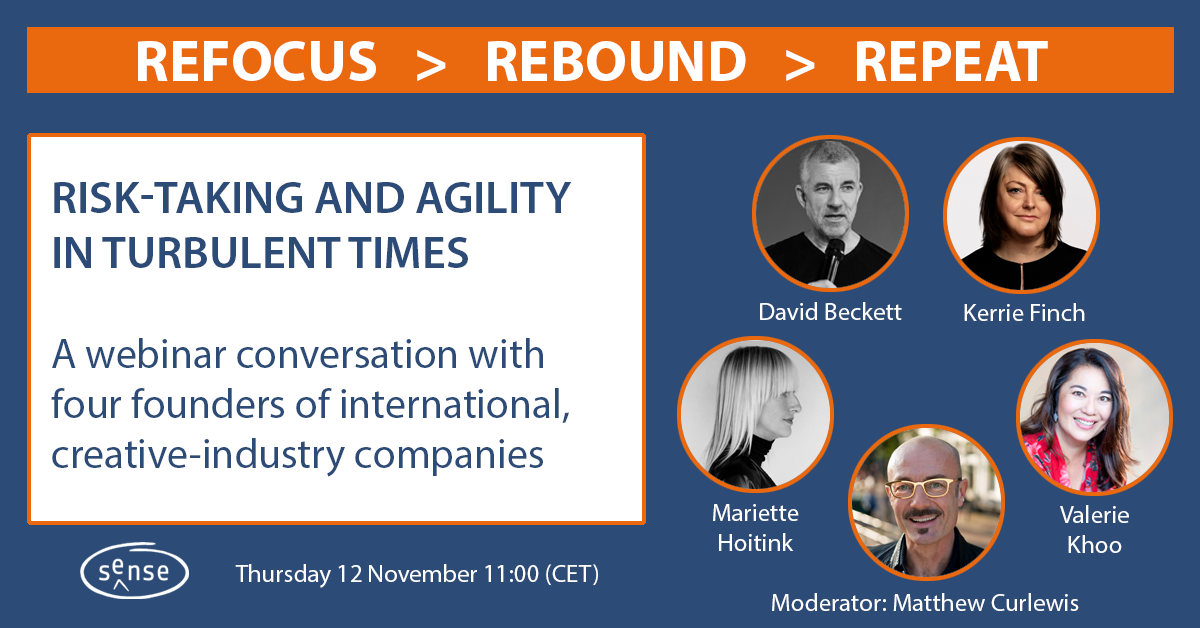
A 75-minute webinar on Thursday 12 November, commencing at 11:00 (CET) / 10:00 (GMT) / 21:00 (AEDT)
In recent years our speakers – four founders of international, creative-industry companies – have interacted, collectively, with tens of thousands of people. Between all the students, recruitment candidates, pitch trainees, and business leaders they’ve had contact with, what qualities most consistently define resilience? And from the many behavioural traits and tendencies they’ve observed, which ones best keep us in flow? These days uncertainty stretches beyond the horizon – one day a pandemic, climate change the next, followed by political and social unrest – what strategies can help us navigate through this unfamiliar territory? Drawing from our speakers’ diverse areas of expertise in writing and creativity, PR, fashion business, and pitch training, what are some tips and techniques on how to pivot and innovate? And what small steps taken today, can help us future-proof ourselves as freelancers, employees, and business owners, ready with positive energy for tomorrow?
In hopes that this conversation might offer some real support for people experiencing financial difficulties at this time, SENSE is providing this webinar free of charge.
Register here.
ABOUT THE SPEAKERS

David Beckett is an international pitch coach who has trained over 1100 Startups to win over €295 million in investments. He's also trained more than 16,000 professionals in corporate settings in 29 countries, as well as more than 30 TEDx speakers. David is the creator of The Pitch Canvas© and the author of the book Pitch To Win. In a previous life, David spent 16 years at Canon as a country director, before leaving in 2009. He then spent a year travelling and another year writing a book about Amsterdam, before running out of money. After taking on five jobs – and getting fired from two of those – he decided to focus on his passions of presentation and coaching.

Kerrie Finch Prior to founding futurefactor (formerly FinchFactor) in 2009, Kerrie Finch was PR Director at Wieden+Kennedy. There she wrangled brands such as Nike and Heineken, Coca-Cola and Electronic Arts. Kerrie has been voted into Adformatie magazine’s top ten industry influencers for the past three years. As Founding Partner & President of futurefactor, Kerrie continues to drive change in the industry, while advancing her work as the Netherlands representative for the Cannes Lions International Festival of Creativity, board member of the ADCN, advisory board member of IncludeNow, and the founder of SheSays Amsterdam.
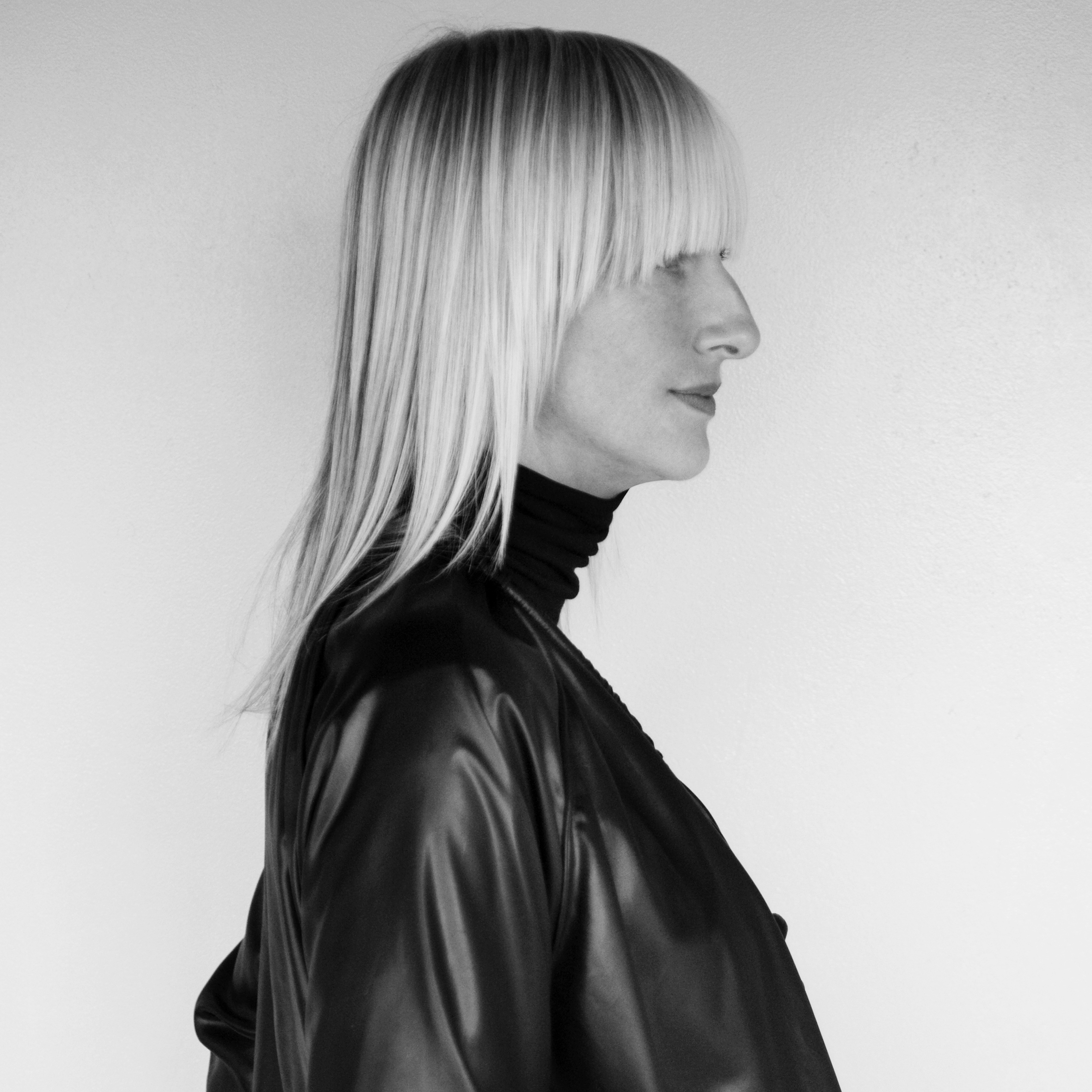
Mariette Hoitink – a matchmaker at heart – is the founder of HTNK; Amsterdam’s premiere multi-disciplinary, full-service recruitment and consultancy agency. HTNK connects both creative and commercial professionals with clients, around the world, working throughout the entire supply chain for all disciplines within fashion, lifestyle and beauty; on recruitment, consultancy, business, and talent development. Mariette’s insider knowledge enables her to create complex value-connections for a variety of clients, and she’s an expert when it comes to sustainability and corporate social responsibility. Mariette is also an instigator of projects that contribute to the development of the creative industry as a whole, which include Red Light Fashion, Dutch Fashion Here & Now, The House of Denim Foundation, and Denim City, the denim innovation campus in Amsterdam with the first and only Jean School in the world.

Valerie Khoo is a writer, mentor, artist and CEO of the Australian Writers' Centre, the country's leading centre for writing courses. She is a non-fiction author of multiple books, and former journalist who wrote for one of Australia's most reputable broadsheets for over 15 years. Valerie combines her work in the writing and publishing industry with her work as a visual artist. Her artwork has featured in multiple exhibitions and is licensed through companies all over the world. Valerie was also the City of Sydney’s Curator of the Sydney Lunar Festival for 2019 and 2020, an event that attracts more than 1.5 million people.
ABOUT THE MODERATOR
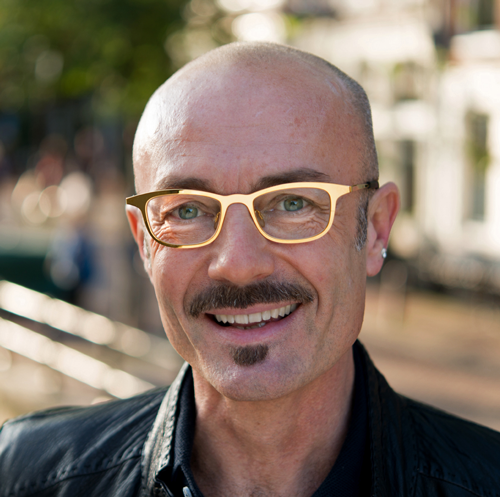
Matthew Curlewis is a freelance Senior Creative in the advertising industry, and the founder of Amsterdam Writers. His copywriting client list includes Emirates, PUMA, Gucci, Heineken, Macy's and Comedy Central, and his articles have appeared in The Guardian, Time Out, Amsterdam Weekly, CODE, Fantastic Man and Blume Illustrated. Matthew began his career as a performance artist and spent 20 years performing on numerous stages across Australia, North America and Europe, before shifting to hosting and presenting. For SENSE, Matthew is the Co-ordinator of Continuing Professional Development.
The thinking behind the words
Chris Baylis, the Netherlands
Copywriting is: The clear. The funny. The charming. The persuasive. The genuine. The moving. The logical. The intelligent. The provocative. The thoughtful.
A copywriter knows which approach to use, and when. A copywriter knows this because they have understood the strategy, they’ve had an idea, and then chosen the right words.
In this interactive workshop, we’ll explore how to approach strategy, how to have an idea and then how to approach the copy itself. We won’t be talking about grammar, structure or any of that. Copywriting is imagination and bravery. For the rest, there’s spellcheck.
Register here.
About the presenter
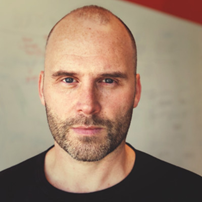
Chris Baylis - Creative Director and Copywriter An international, award-winning creative leader and storyteller, with 20 years experience in advertising, innovation and branding. I help brands find their purpose, voice and organizing narrative - connecting this to culture through content, advertising, experience design and marketing.
Chris has led network agencies, worked client-side as a copywriter and creative director, helped many of his own clients find their voice, define their brand and reach their audience, and he has mentored and helped many start-ups. Chris taught and lectured at Miami ad-school, Cannes Lions and Eurobest ad festivals. Some of his work is here.
The sweet sound of writing finesse
Oliver Lawrence, Italy
In this world of hurriedly written, poorly edited or machine-translated flam, there’s an aspect of wordsmithery that can help your work stand out.
Euphonics.
The ability, that is, to write not just clearly and incisively but melodiously, too. If we can craft texts that sound sublime, then we’ll be doing that bit more to seduce our readers, delight our clients and – why not? – spread a little verbal happiness.
That doesn’t mean overdoing it with the frills; rather, it’s about cultivating a sensibility to sound and rhythm, assonance and emphasis, a feel for when you need an extra beat in the bar, another adjective before that noun, or a volley of stressed syllables to ram a point home. It’s about exploiting the resonances alive in tinny t’s or luxuriant l’s or bumbling b’s. Not childish onomatopoeia or titillating tabloid alliteration but … euphony.
With a blend of presented and hands-on material for you to grapple with, this workshop aims to attune attendees to the nuances of rhythm, sounds and patterns of echoes. To turn piffle into – well, if not poetry then something easier on the ear.
Register here.
About the presenter
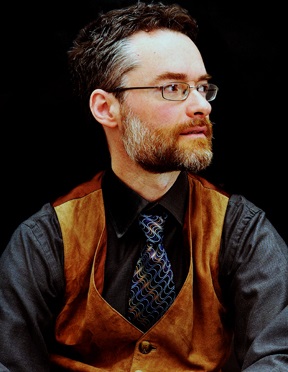
Oliver Lawrence turns Italian marketing texts and, occasionally, writing briefs into incisive English, specialising in tourism, leisure and luxury. Much of his editing and translation work involves damping down faintly cacophonous glitches that foul the flow of what should be smooth high-end copy. A Fellow of the CIOL, Chartered Linguist, ITI Assessor and strolling conference presenter, among other things, he teaches the CIOL web-based Clear Writing course – now in its 8th edition – and lurks online at www.incisiveenglish.pro and @oliverlawrence1. Interests include poetry, cake and gin, but not necessarily in that order.
Writers' Stretch & Tone
Matthew Curlewis, the Netherlands
A six-week workshop cycle for both advanced and beginner writers to stop thinking and start doing. Generate new work, revise old work, experiment with form and style and generally keep your writerly muscles fit - all in the company of other like-minded writers.
For this workshop, whether you have a story or a project already in process or not doesn’t matter. Writing suggestions during the sessions will always give you somewhere to start. Then it’s your choice whether you try out different voices and approaches in a new piece of writing or you continue to develop a work already in progress.
By the end of each session, you will have created new work. You will also have heard some fellow participants read their new work out loud - and sometimes you may have read out loud yourself. (Reading is always optional.) What will always remain is that thinking, by itself, doesn’t produce writing. Writing produces writing!
Time is also made available, when requested, to read and analyse participant manuscripts - no matter what their form. This might mean reviewing short stories and essays, at other times screenplay excerpts or works still finding their form. Feedback is given in two rounds:
- What's working? What's already good in this manuscript?
- Are there any obstacles or confusions? Any suggestions on how to improve this piece of writing?
At the culmination of six weeks, your writerly muscles will be stronger and more flexible, and you will feel fitter as a writer. This in turn will give you greater confidence for taking on further or more complex writing challenges.
Cycle of workshops: six weekly sessions
Tuesday evenings from 22 September to 27 October, 19:00 to 21:30
Spaces are limited to 10 participants maximum.
Register here.
About the presenter

Certified to lead workshops in the Amherst Writers and Artists method, Matthew founded Amsterdam Writers in 2008 and has been leading his workshop, 'Writers' Stretch & Tone', ever since.
As a Senior Copywriter, Matthew has worked on international campaigns for clients that include Emirates, PUMA, Gucci, Heineken, Philips, Sony Computer Entertainment, Accenture, Macy's and Comedy Central.
His writing has appeared in publications, including Time Out, Amsterdam Weekly, CODE, Fantastic Man and Blume.
Matthew was both screenwriter and lead producer of Brilliance, a Netherlands, Poland, UK co-production short film that screened internationally at numerous film festivals, and which is one of Eye International's 'Selected Dutch Shorts 2015'.
See also Amsterdam Wrters.
Applying plain language principles to creating accessible, reader-friendly texts
John Linnegar, Belgium
‘The message is important, not the fancy language wrapped around it.’ (George Orwell)
It’s astonishing how may writers feel they need to ‘dress up’ their writing to the extent that they lose their natural (aka plain) voice completely! Their reasons are no doubt many: from wanting to impress to needing to sound important or authoritative – and sometimes even because their boss or professor ‘writes like that, so it must be good’! But in this day and age we should rather be ‘dressing down’ writing to make it more accessible and flow better. Where writers themselves are incapable of doing so, the task usually falls to us wordsmiths to dress (not dumb!) writing down.
We need to make authors’ words clear and straightforward, using only as many words as are necessary. Plain Language helps us to do so by dispensing with the ‘fancy language wrapped around their words’: obscurity, inflated vocabulary and convoluted sentence constructions. Applying Plain Language principles systematically, our aim is to render the authors’ messages readily understood at first reading.
By the end of this workshop you will be able, with confidence, to:
- convert long, complex sentences into shorter compound or simple ones;
- replace, where possible, passive voice (O-V-S) constructions with active ones (S-V-O);
- remove embedded clauses from complex sentences;
- replace ‘difficult’ polysyllabic words and jargon with more everyday, accessible synonyms (e.g. ‘remuneration’ with ‘pay’ or ‘wage’);
- make impenetrable noun strings accessible by inserting prepositions and articles into them;
- supplant nounisms (nominalisations) with healthier vigorous verb equivalents (e.g. ‘invitation’ with ‘invite’);
- dispense with archaisms such as ‘aforesaid’, ‘herein’, ‘thereby’, ‘whereafter’;
- find ways to introduce useful visual elements (e.g. lists).
Fundamentally, we wordsmiths will be asking – and answering – the questions ‘Who is the audience and what are their needs?’ In so doing, we’ll be using the approach our writers should have adopted in the first place: a reader-centredness.
In this 3.5-hour workshop, you’ll have an opportunity to put these principles into practice.
Register here.
About the presenter
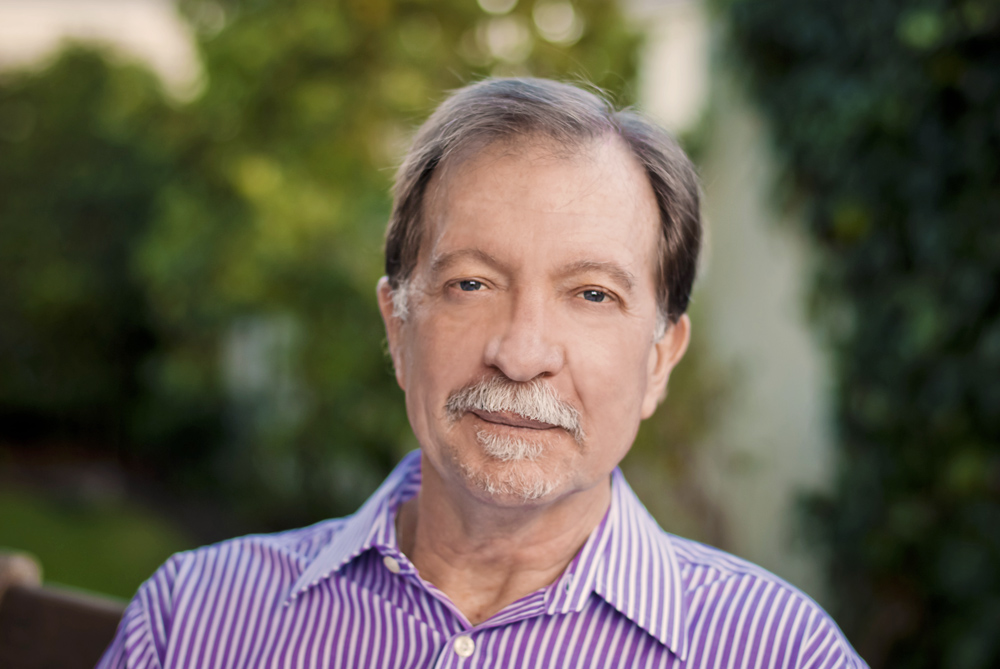
An author and a passionate copy-editor with some 40+ years’ of manuscript improvement behind him, John Linnegar is a former teacher of English at secondary school and undergraduate levels. His specialty as an editor is law. In 2009 he published a book on common errors committed by writers in English in South Africa (NB Publishers, reprinted 2013); in 2012 he co-authored Text Editing: A Handbook for Students and Practitioners (UA Press) and in 2019, together with Ken McGillivray, wrote and published grammar, punctuation and all that jazz … (MLA Publishers). He contributes regular articles on the usage and abusage of the English language to professional bodies.
Stephen Johnston
 Stephen Johnston is a professional trainer, copywriter and journalist who works with multi-national companies on projects such as websites, internal and external communication, white papers, marketing material, brochures, corporate journalism, and speechwriting ... and blogs!
Stephen Johnston is a professional trainer, copywriter and journalist who works with multi-national companies on projects such as websites, internal and external communication, white papers, marketing material, brochures, corporate journalism, and speechwriting ... and blogs!
Much of this work involves specifically targeting different readership groups. Stephen also upgrades previously written texts and/or provides one tone-of-voice for texts with multiple authors to increase their impact and professionalism. He also conducts workshops and training sessions to improve the quality of business writing and presenting.
Stephen is giving a pre-conference workshop entitled The impossible blog: How to write a readable blog from unreadable material.
Workshop 2: Stephen Johnston
The impossible blog: How to write a readable blog from unreadable material
Summary: This fun workshop trains participants to (ghost)write short, clear, and easy-to-understand blogs from
technical or highly detailed and dry source material.
Purpose: Professional copywriters are often asked to write a blog for a company, only to be faced with virtually unreadable, complex source material. “Make it sexy!” they say.
Hmmm.
This hands-on workshop trains participants to take technical, specialized, and/or complicated source material and turn it into a readable, interesting blog for the general public. With a fun mix of theory and exercises, participants will learn how to:
- Determine the target readers
- Distill key information
- Create a hook and a story to interest readers
- Re-write it while removing technical terms
- Write interesting headings to grab the readers’ attention
- Create short social media descriptions for Twitter, LinkedIn, facebook, etc.
It will help any seasoned or budding writers (or translators/editors who would like to become a writer) to gain confidence and skill in writing company blogs – a great addition to any CV.
About the facilitator
 Stephen Johnston is a professional trainer, copywriter and journalist who works with multi-national companies on projects such as websites, internal and external communication, white papers, marketing material, brochures, corporate journalism, and speechwriting... and blogs!
Stephen Johnston is a professional trainer, copywriter and journalist who works with multi-national companies on projects such as websites, internal and external communication, white papers, marketing material, brochures, corporate journalism, and speechwriting... and blogs!
Much of this work involves specifically targeting different readership groups. Stephen also upgrades previously written texts and/or provides one tone-of-voice for texts with multiple authors to increase their impact and professionalism. He also conducts workshops and training sessions to improve the quality of business writing and presenting.
To register for this pre-conference workshop click here.
Workshop 3: Margreet de Roo
Making the best, most optimal use of MS Word
Summary: MS Word is an immensely powerful tool – if you know where to find its often hidden strengths. Rather than use it as an upgraded typewriter, why not automate the parts of your work process that free you up to focus on the more interesting and rewarding aspects of your job? In this workshop, you will learn some ways to tweak MS Word so that the functions you use most often or regularly are a lot easier to find. You will also discover the incredible power of macros and learn where to find many, many of them. And you will be introduced to PerfectIt, an add-in that was built with writers and editors in mind and that will save you tons of time and brainpower.
Purpose: This workshop aims to teach participants to use Word more efficiently and effectively so that they can spend their valuable time and energy on the more interesting elements of their job and leave the simple, repetitive tasks to the tools that are good at them – macros and PerfectIt.
Description and structure: The workshop is divided into three parts:
- tips and tricks on using MS Word at its optimal best
- an introduction to PerfectIt
- an introduction to macros.
Who should attend? This workshop is targeted at writers, editors and translators at all levels who work with MS Word on a Windows computer, but who need to exploit its time- and labour-saving strengths. Mac users are welcome to attend, of course, but the focus will be on Windows. (PerfectIt for Mac is in the beta stage of development.)
Materials to bring: Laptop
Outcome skills: By the end of this workshop you will have been made aware of and be able to use a variety of tools that make the use of MS Word more efficient and effective. You will be able to automate certain parts of your work process and will therefore have more brainpower left for the interesting stuff!
Pre-workshop information: PerfectIt: http://www.intelligentediting.com/
Macros: http://www.archivepub.co.uk/macros.html
About the facilitator
 In what feels like a previous life Margreet de Roo used to be a German teacher until she moved to Nairobi, Kenya, with her husband in 2003. They returned to the Netherlands in 2012, where Margreet set up her editing business, Maneno tekstredactie. She mostly works as a copy-editor and proofreader and is learning how to do developmental editing. Every now and then she translates a book from English or German into Dutch.
In what feels like a previous life Margreet de Roo used to be a German teacher until she moved to Nairobi, Kenya, with her husband in 2003. They returned to the Netherlands in 2012, where Margreet set up her editing business, Maneno tekstredactie. She mostly works as a copy-editor and proofreader and is learning how to do developmental editing. Every now and then she translates a book from English or German into Dutch.
In the Facebook groups for editors that she joined, she quickly discovered that there are many tools that can make an editor’s life easier, and she enjoys using them. In 2016 she started sharing her knowledge with fellow editors and translators through her workshop Handigheidjes Word and that reminded her of why she likes teaching so much: seeing the smiles when students realize that they have just learned something incredibly useful.
Margreet lives in Zwolle with her husband, two daughters and two cats.
To register for this pre-conference workshop click here.
Workshop 4: John Linnegar
It needs only a 'light' edit: Negotiating the differences between light, medium and heavy editing
Summary: Authors with a reputation for submitting well-prepared manuscripts (MSS), or who are likely to be hostile or hypersensitive to more major changes, will often request only a light edit (whatever that means), and the text editor’s billable hours will be expected to reflect this. Medium editing is naturally the norm to which most MSS conform (Merriam-Webster 2001: 235), and usually comprises two passes (Einsohn 2000: 16; Mackenzie 2011: 168). Heavy editing conveys broad latitude to shape the MS’s language and content components (and a little structural editing) (Davies & Balkwill 2011: 170; Einsohn 2000: 12; Mackenzie 2011: 169). It is used if a work is in need of significant improvement, usually in the opinion of either the commissioning editor or sometimes of the text editor (Davies & Balkwill 2011: 170). When this decision is taken, the next question that arises is: Will the author be capable of making the book acceptable to its target audience or should a detached professional text editor be asked to undertake the necessary improvements? (But how often don’t clients expect to get away with a ‘light’ edit on a dog of a text!)
Purpose: To reduce the amount of uncertainty, guesswork and/or thumbsucking that goes into deciding the appropriate level of editing required on a document. From this workshop, editors and translators (as revisors) will take away a set of criteria and a formula that will help them distinguish the different levels, especially when having to justify the level of editing or revising required – and its related fee and deadline – to clients.
Description: Through being exposed to two or three interpretations of levels of editing put forward by leading practitioner-authors in the field (PowerPoint presentation and handout containing excerpts from the authors’ books), the participants will hear and see what experts have to say about gauging the level of editing required. What they will do during the workshop is obtain a closer idea of how to assess the level of editing by engaging with eight short passages and comparing their assessments with those of others.
Although the session will be English-language based, the guidance from the editing gurus cited applies to all languages, writers and writing.
Structure: First, the different levels of editing or revision – light, medium and heavy/extreme, and excessive, as described or labelled by leading authors on the subject – will be explained. Then, by examining the extent of the errors that need correcting in eight brief texts, participants in this workshop will gain a more informed, hands-on idea of how to distinguish between the different levels of editing or revision and, consequently, begin to do so with greater confidence. The facilitator will also share his technique for quantifying the level of editing involved, based on the number and nature of the corrections performed on a sample of a text.
Who should attend? Any editor or translator who is in the position of having to determine and evaluate the nature and extent of the improvements that have to be made to a text, to attach a fair value to their editorial intervention.
Outcome skills: On the basis of error detection, labelling and assessment, and by employing a simple formula, participants will more closely and confidently be able to determine the level of editing required. Based on that, they will also be better equipped to determine whether the proposed fee for an editing job and the deadline are reasonable/fair.
Pre-workshop information: If you have access to Davies & Balkwill (2011); Einsohn (2000, 2010), Mackenzie (2011) or Van de Poel & Linnegar (2012), read up on the subject of levels of editing. Otherwise, simply think deeply about the problems you have encountered trying to determine the level of editing and the commensurate fee for the job.
About the facilitator
 Until 2010, like many other editors, John Linnegar had little idea of how to distinguish between the nuanced three levels of editing (and that after 30 years in the game!). Then he began researching the subject, only to find that less than a handful of authors had written about it! It’s their ideas – plus his own guide to how possibly to quantify the levels in specific editing tasks – that he will be sharing and workshopping, using a set of real texts.
Until 2010, like many other editors, John Linnegar had little idea of how to distinguish between the nuanced three levels of editing (and that after 30 years in the game!). Then he began researching the subject, only to find that less than a handful of authors had written about it! It’s their ideas – plus his own guide to how possibly to quantify the levels in specific editing tasks – that he will be sharing and workshopping, using a set of real texts.
John has been a text editor, proofreader and indexer of school and academic textbooks, reports and journal articles since the 1970s. For almost 20 years he has trained generations of editors (including authors’ editors and academic editing skills), proofreaders and indexers. During this time he has published several books on aspects of language usage and editing, including Text Editing: A handbook for students and practitioners (UPA, Brussels, 2012). Now based in Antwerp, Belgium, he is a member of a number of professional associations, including SENSE, MET and Australian and South African societies.
To register for this pre-conference workshop click here.
Workshop 1: Emma Goldsmith
EU regulatory medical writing and EMA templates: Compliance and consistency
Summary: There are strict requirements in Europe for translating summaries of product characteristics, package leaflets and labelling (all the documents that make up medicinal product information). To comply with these requirements, you are expected to use specific templates, standard terms and controlled terminology. You may already be translating these documents and wondering whether you’re doing it right, or you may want to start working in this field and you’re not sure how to go about it.
Purpose: To familiarise translators with the European Medicines Agency (EMA) templates, comply with terminology requirements and use translation technology to ensure consistency.
Description and structure: First, we will look at the documents that make up product information and guidelines. Then, we will download and work on the EMA templates and appendices, focusing on practical aspects of the translation workflow and discussing the pros and cons of converting these documents into term bases and translation memories. We will also look at language register, comparing the different styles of the Summary of Product Characteristics and Package Leaflet. After a break, we will align a template in your source and target language, and investigate terminology in EDQM Standard Terms, MedDRA and the WHO INN database.
Who should attend? Translators who work with European languages and want to learn about or refresh their knowledge of EU regulatory medical writing in general and EMA templates in particular.
Outcome skills: By the end of the workshop, attendees will feel more confident about complying with the strict requirements for translating EU product information and they will come away with a better understanding of how to manage the technological aspects of this field.
Pre-workshop information: Attendees should bring a laptop to the workshop. A handout will be sent out in advance with files and website links that will be used on the day.
About the facilitator

Emma Goldsmith originally trained as a registered general nurse at St Thomas’ Hospital in London. She moved to Spain in 1987 and for the following 10 years, she worked as a staff nurse through the BNA (British Nursing Agency) during visits to England. This gave her broad experience in a wide range of hospital settings.
Meanwhile, in Madrid, Emma set up as a freelance Spanish to English translator, first working for local translation agencies and later – in the Internet age – specialising in medicine for global companies and individuals. She now has over 20 years’ experience translating clinical trial documentation, articles for publication in medical journals, and product information for EMA submissions. Emma is a member of Mediterranean Editors and Translators (MET) and currently serves as Webmaster on MET’s Council.
To register for this pre-conference workshop click here.